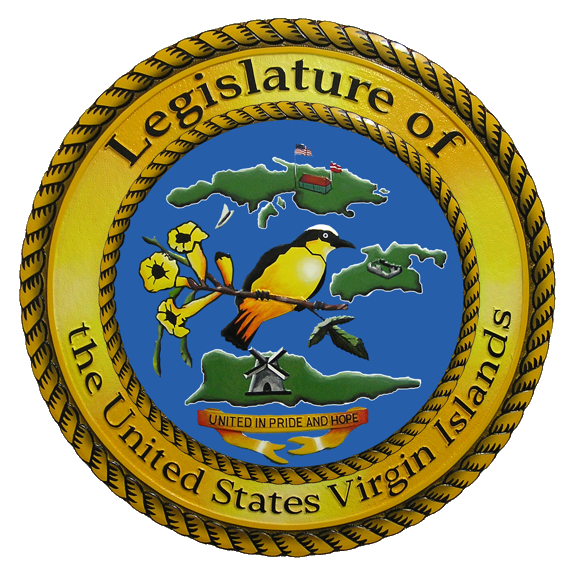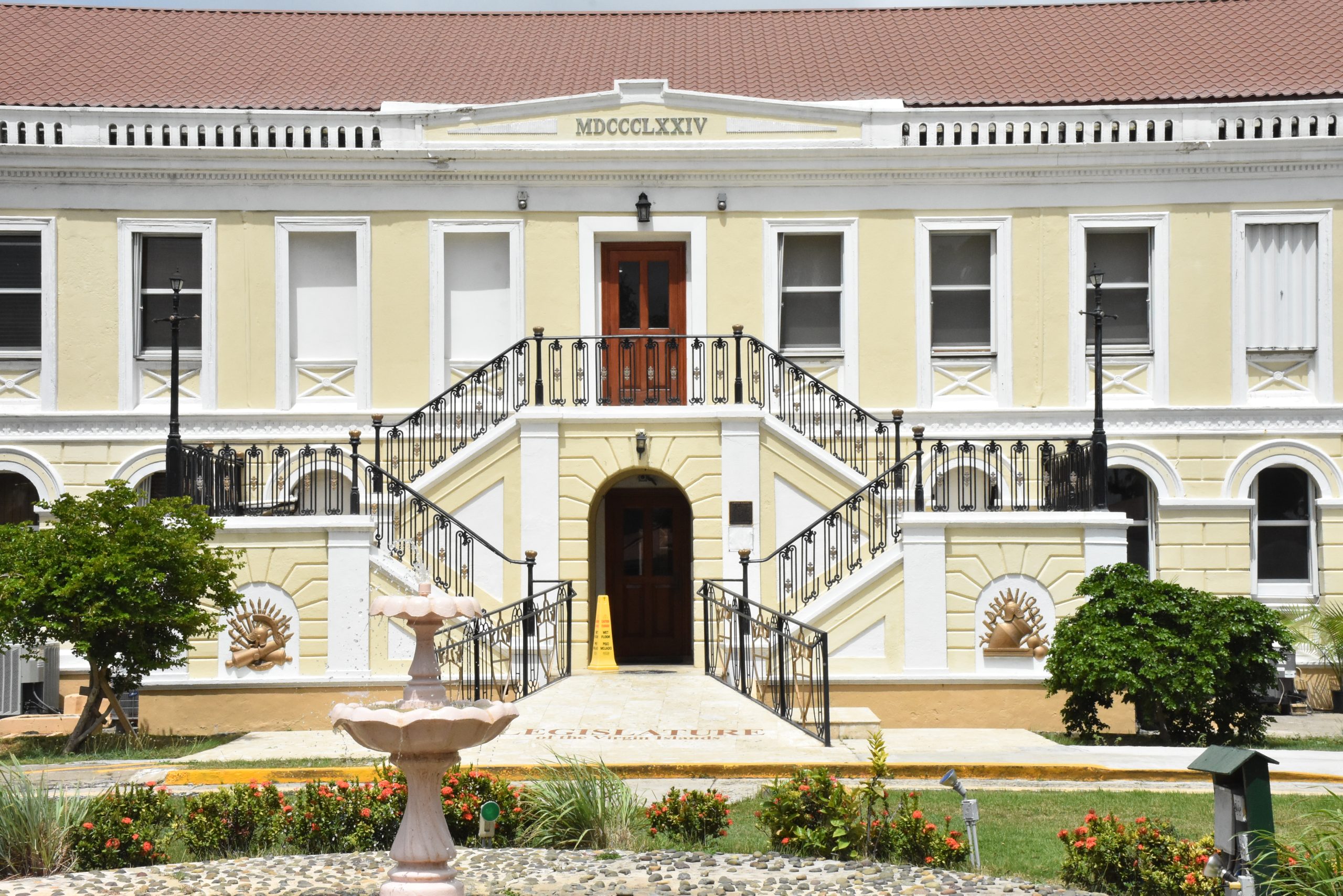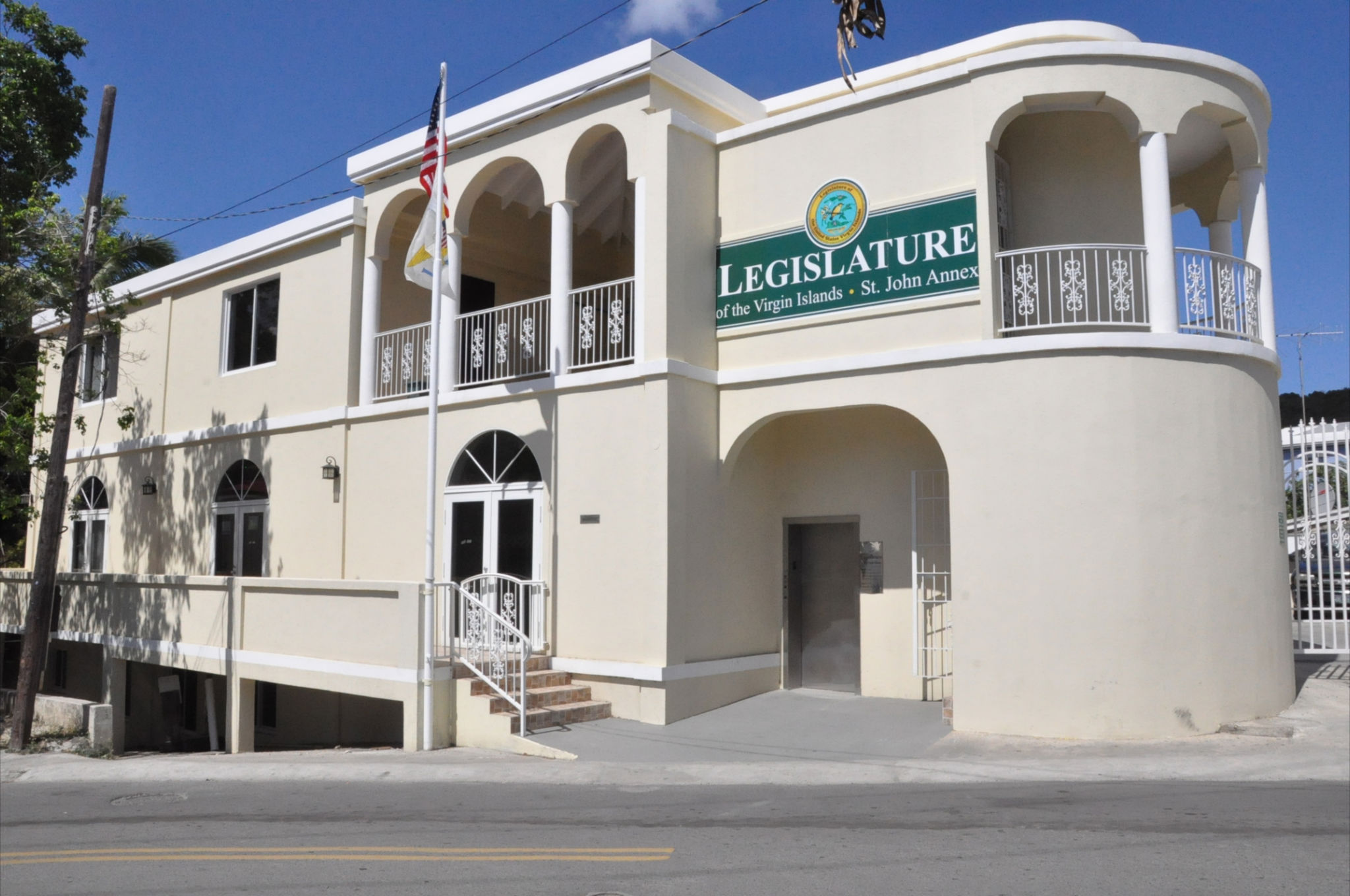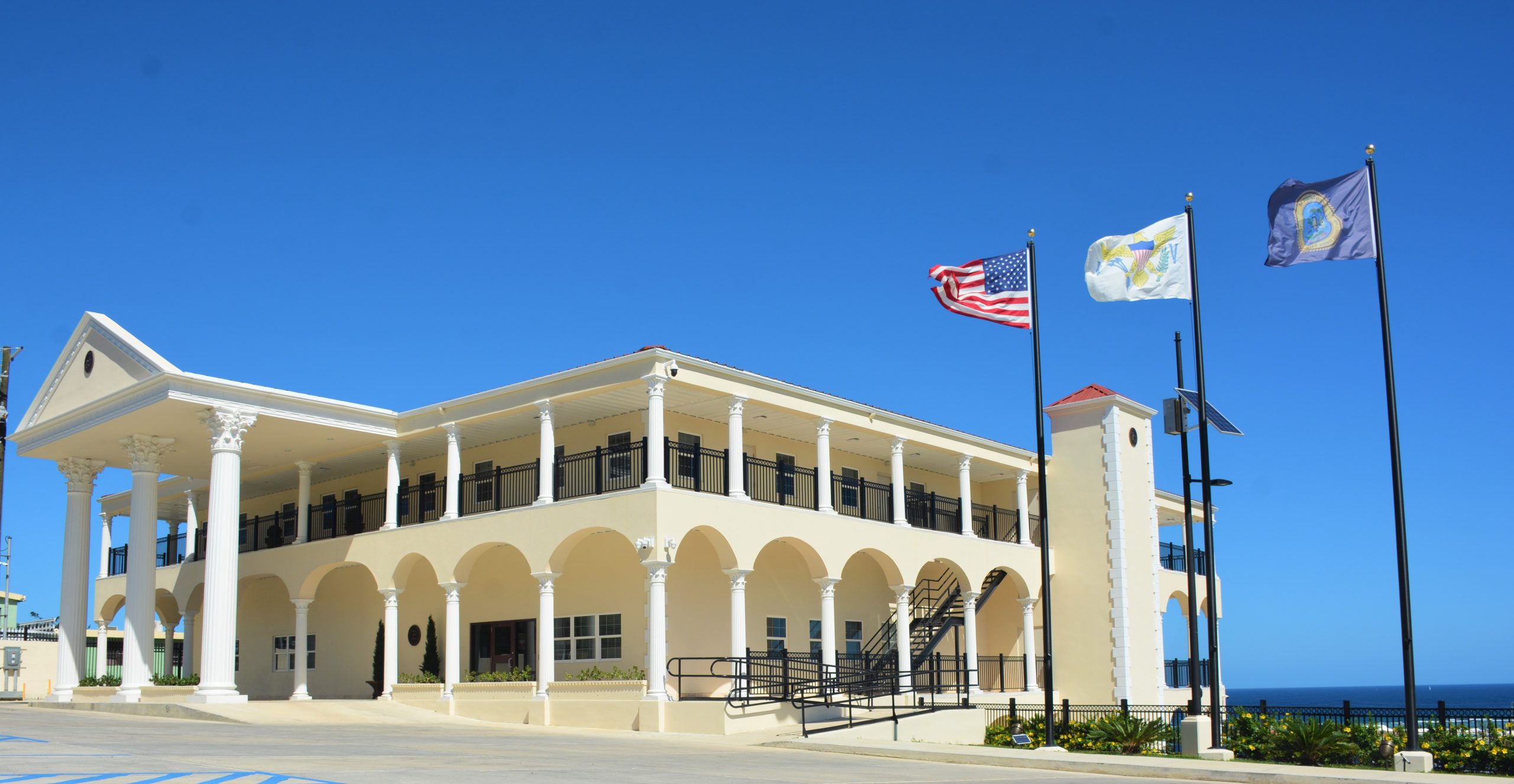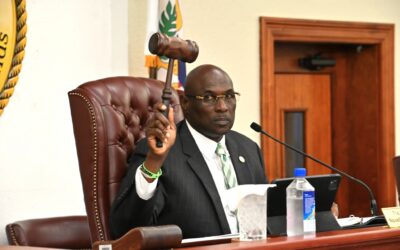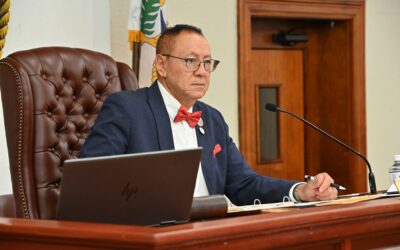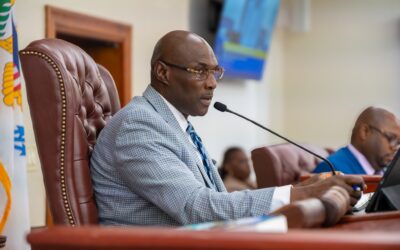COMMITTEE HEARS BILL BANNING DISCRIMINATION BASED ON SEXUAL ORIENTATION AND TAXICAB COMMISSION EMPOWERMENT BILL
Published: Sep 15, 2022
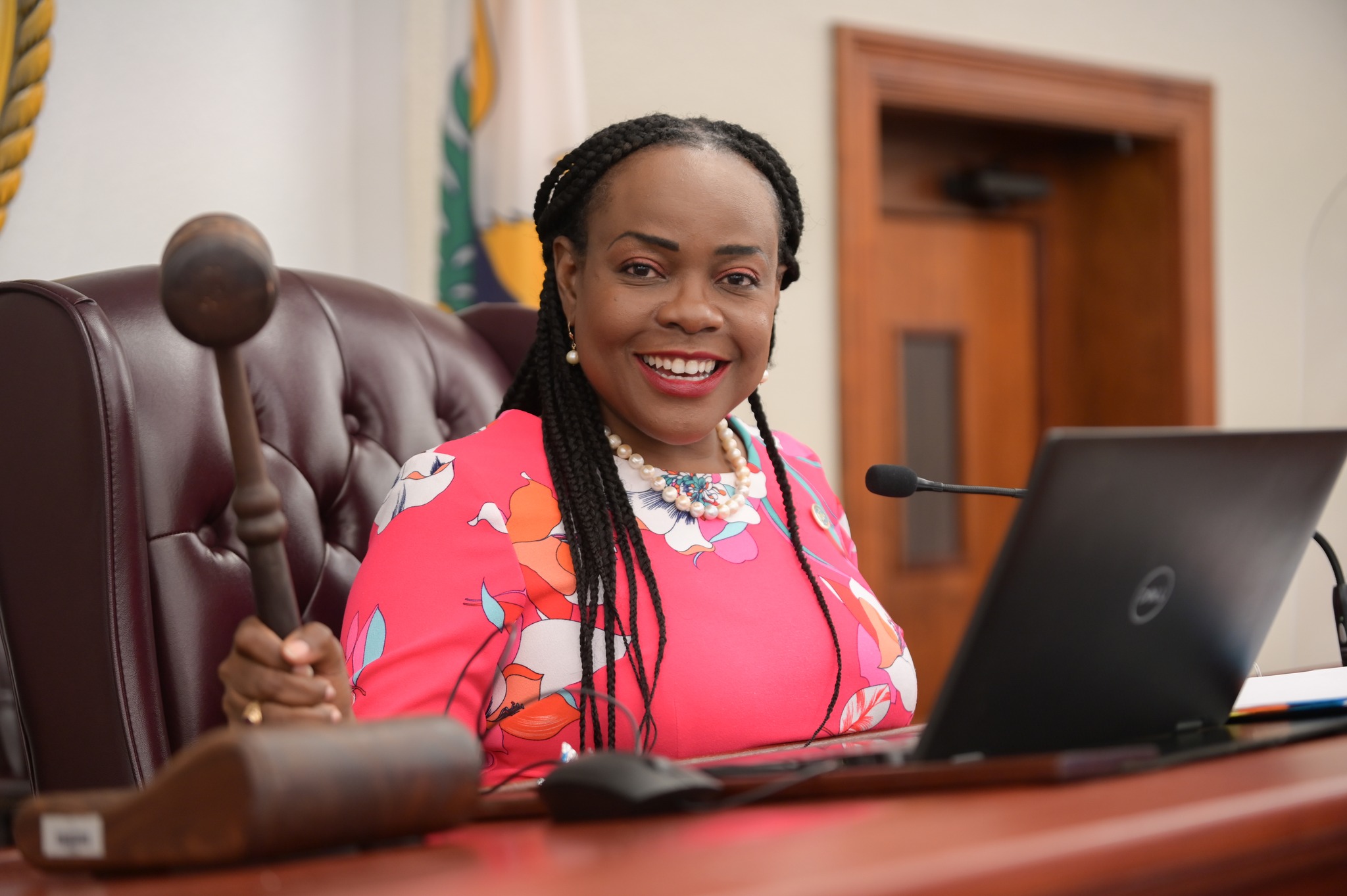
ST. THOMAS – Members of the Committee on Government Operations and Consumer Protection, led by Senator Carla J. Joseph met at the Earle B. Ottley Legislative Hall. Lawmakers voted in favor of bills concerning the banning of discrimination based on sexual orientation and a measure empowering the Executive Director of the Virgin Islands Taxicab Commission to hire the necessary staff to operate and manage its office. All approved items will be sent to the Committee on Rules and Judiciary for further consideration.
In block one, the Committee considered Bill No. 34-0271, an act amending Title 10, Virgin Islands Code, Chapter 5, Section 64 of the Civil Rights Act to include discrimination based on sexual orientation as an unlawful discriminatory practice. The measure was sponsored by Senator Janelle K. Sarauw.
Cindy Richardson, the Director of the Virgin Islands Division of Personnel delivered testimony on behalf of the measure. The Division supported the intent of the bill and stated that they were proud to be involved in setting an example that discrimination based on sexual orientation is unacceptable throughout the territory. Discrimination based on sexual orientation includes individuals being treated differently or harassed because of a real or perceived sexual orientation. Sexual orientation is a person’s sexual identity in relation to the gender or genders in which they are sexually attracted.
Discrimination based on sexual orientation is not limited to the workplace and can span various scenarios, including but not limited to business interactions, real estate, places of public accommodation, public assisted housing, and financial intuitions or lenders. Nationally, over 40 percent of workers in the United States report experiencing unfair treatment at work including being fired, not hired, or harassed because of sexual orientation. Thirty (30%) percent of individuals have also reported that they experienced discrimination or harassment within the past five years. Many employees have reported engaging in behavior to avoid discrimination, including hiding sexual orientation, leaving jobs, or considering leaving jobs because of unfair treatment.
Bostock v. Clayton, a landmark United States Supreme Court case made discrimination based on sexual orientation illegal in both public and private workplace. Nationwide, all employers are prohibited from firing or otherwise discriminating against workers based on sexual orientation for gender identity in every aspect of employment, including, but not limited to hiring, training, promotion, compensation, discipline, and termination. Before Bostock v. Clayton, about half the states in the nation had outlawed workplace discrimination based on sexual orientation or gender identity. The Second and Seventh Federal Court Circuits have held that sexual orientation discrimination is a form of sex discrimination in violation of Title VII of the Civil Rights Act of 1964.
Nesha Christian-Hendrickson, the Assistant Commissioner and Legal Counsel of the Virgin Islands Department of Labor delivered additional testimony. Christian-Hendrickson stated that the Department supported the bill but recommended one change. She stated that the bill should be revised to state “sex, which is defined to include, pregnancy, sexual orientation, and gender identity,†which would mirror the interpretation of Title VII of the Civil Rights Act, which prohibits employments decisions based on stereotypes. Thirty states and territories have passed laws preventing discrimination based on sexual orientation. On June 15, 2020, in Bostock v. Clayton, the United States Supreme Court held that the Civil Rights Act of 1964 protects employees against discrimination because they are gay or transgender, providing the interpretation of Title VII. On January 20, 2021, the Biden Administration issued an “Executive Order on Preventing and Combating Discrimination based on Gender Identity or Sexual Orientationâ€Â, further enhancing the protections in Bostock v. Clayton.
Eric Chancellor, the Deputy Attorney General for the Virgin Islands Department of Justice delivered further testimony on the proposed measure. The Office of the Attorney General supported the measure. Per Chancellor’s testimony via the National Conference of State Legislatures, there are twenty-seven states, including Puerto Rico and the District of Columbia that prohibit discrimination based on gender identity. Twenty-seven different states, including the District of Columbia and Puerto Rico prohibit employment discrimination based on sexual orientation. The Office of the Attorney General urged the body to pass the measure, stating that it would offer further protections outside the employment setting, such as outlawing discrimination in education, housing, banking, and any other area that would impact those of different sexual orientations. The Office also urged to include a section that would define “sexual orientation†as well as “gender identity,†stating that the terms were not synonymous, and could potentially cause confusion in what the law would allow and prohibit.
Troy de Chabert Shuster, the AARP Virgin Islands State Director delivered additional testimony. AARP supported the measure. According to de Chabert Shuster’s testimony, LGBTQ discrimination is an aging issue that has endangered the health, financial security, and personal fulfillment of many Americans. According to AARP’s 2022 landmark national LGBTQ research study, 34 percent of older LGBTQ older adults are concerned that they would have to hide their identity to gain access to social services. Over half of the respondents reported fear of sexual orientation discrimination if they need to access suitable housing or gain employment. According to this survey, 92 percent support protection from discrimination based on sexual orientation or gender identity, like protections for discrimination based on race, sex, national origin, or religion. de Chabert Shuster’s testimony included several recommendations to address concerns, including addressing employment practices, having anti-discrimination training, and ensuring enforcement and protection. The proposed measure was voted upon favorably.
In Block two, the Committee considered Bill No. 34-0272, an act amending Title 3, Virgin Islands Code, Chapter 16, Section 274 to empower the Executive Director of the Taxicab Commission to hire the necessary staff to operate and manage the Taxicab Commission office. The measure was sponsored by Senator Janelle K. Sarauw.
Loretta Lloyd, the Chairwoman of the Virgin Islands Taxicab Commission Board delivered testimony. Lloyd voiced opposition to the proposed bill, stating that the legislation was micromanaging the semi-autonomous agency. According to her testimony, after the Board hired executive directors, they ignored the board and acted independently which was contrary to law. Lloyd stated that there was no need to change the way any employee of the agency is hired, when the agency had two arms, an enforcement arm, and an administrative arm. Lloyd mentioned that “selective prosecution†was not the way to run any board or commission, and that creating legislation to appease certain individuals was unethical. The Board did not support the enactment of the proposed measure.
Ms. Vernice Gumbs, the Acting Executive Director of the Virgin Islands Taxicab Commission delivered testimony. Gumbs stated that the proposed measure would not allow the Taxicab Commission’s future boards to leverage its power. Gumbs stated that the role of the Taxicab Commission should not be vague or confusing or put the board members and the Executive Director at odds. Gumbs voiced concern, asking what would happen if the agency were faced with an unexpected resignation and/or unforeseen circumstances. She asked who would assume the role of the Executive Director. Additionally, Gumbs asked what would happen if a new Executive Director was hired but not in favor of any candidates, asking what would happen to those candidates. Gumbs mentioned further issues, stating that unless the Executive Director had enforcement experience, they would not be able to hire a well-qualified candidate for the position. She voiced the need for a strong board, comprised of qualified individuals. However, Gumbs did not support the enactment of the proposed measure.
Mr. Shane Benjamin, the Former Executive Director of the Virgin Islands Taxicab Commission delivered testimony. Mr. Benjamin supported the measure, stating that during his tenure as Executive Director, he had a challenging time managing its operations. Benjamin stated that he had no authority to make decisions on its operations. He stated that we was excluded from communications that would have been needed to effectively operate the Commission.
Linda Smith, the Former Executive Director of the Virgin Islands Taxicab Commission delivered testimony. Smith stated that based on the history of the Commission, it remained in a constant state of redundancy. Smith stated that the Commission would remain undesirable if only temporary fixes were implemented. She voiced the need to retrench, retool and relaunch the agency. Smith supported the measure, stating that the amendment to Virgin Islands code was necessary, citing jurisdictions in the mainland such as New York, Texas, and California, where there hiring of personnel remains at the department level, while the issuance of taxi medallions, and other regulatory matters are at the board level. Smith stated that the Commission did not have written policies or procedures. She voiced the need for clear governance between the Board and Executive Director. Smith mentioned that the Commission did not have board meetings, which was so even before the onset of the COVID-19 pandemic. She further mentioned that the Commission is severely short-staffed and lacks the important personnel to properly function. The proposed measure was voted upon favorably.
Finally, in Block three, A letter from Andrew L. Smith, the Executive Director of the Virgin Islands Water and Power Authority was read into the record. The letter indicated that the Authority was unavailable to testify in person, stating that they were in the process of receiving indications of interest from a number of global and local renewable developers. Senator Joseph voiced frustration, stating that the Water and Power Authority was invited to come before the Committee two previous times, which were unsuccessful. A motion was entertained to subpoena the Authority to appear before the Legislature at a later date to be determined. The motion was successful.
Senators present at today’s committee meeting included Carla J. Joseph, Novelle E. Francis Jr., Marvin A. Blyden, Alma Francis Heyliger, Javan E. James, Sr., and Franklin D. Johnson.
####
Related Content
COMMITTEE RECEIVES FY 2026 BUDGET REQUEST FOR DPNR, VETS BILL TO RAISE COST TO BRING IN CONTAINERS
ST. THOMAS, VI – The Committee on Budget, Appropriations, and Finance, chaired by Senator Novelle E. Francis Jr., met in the Earle B. Ottley Legislative Hall on St. Thomas to receive testimony for the Fiscal Year 2026 Budget from the Department of Planning and Natural...
COMMITTEE VETS BILL TO ESTABLISH REQUIRED SERVICES AT NURSING HOMES AND ASSISTED LIVING FACILITIES, RECIEVES OVERVIEW OF WASTEWATER DISCHARGE CONCERNS, RECIEVES UPDATE FROM SCHNEIDER REGIONAL CONCERNING DIALYSIS SERVICES
ST. THOMAS, VI – The 36th Legislature of the Virgin Islands’ Committee on Health, Hospitals, and Human Services, led by Senator Ray Fonseca, met at the Earle B. Ottley Legislative Hall. Lawmakers considered a measure that would establish the services that nursing...
COMMITTEE RECEIVES FY 2026 BUDGET REQUESTS FOR BMV, SPORTS, PARKS, AND RECREATION, AND PROPERTY AND PROCUREMENT
ST. THOMAS, VI – The Committee on Budget, Appropriations, and Finance, chaired by Senator Novelle E. Francis Jr., met in the Earle B. Ottley Legislative Hall on St. Thomas to receive testimony for the Fiscal Year 2026 Budget from the Bureau of Motor Vehicles (BMV),...
